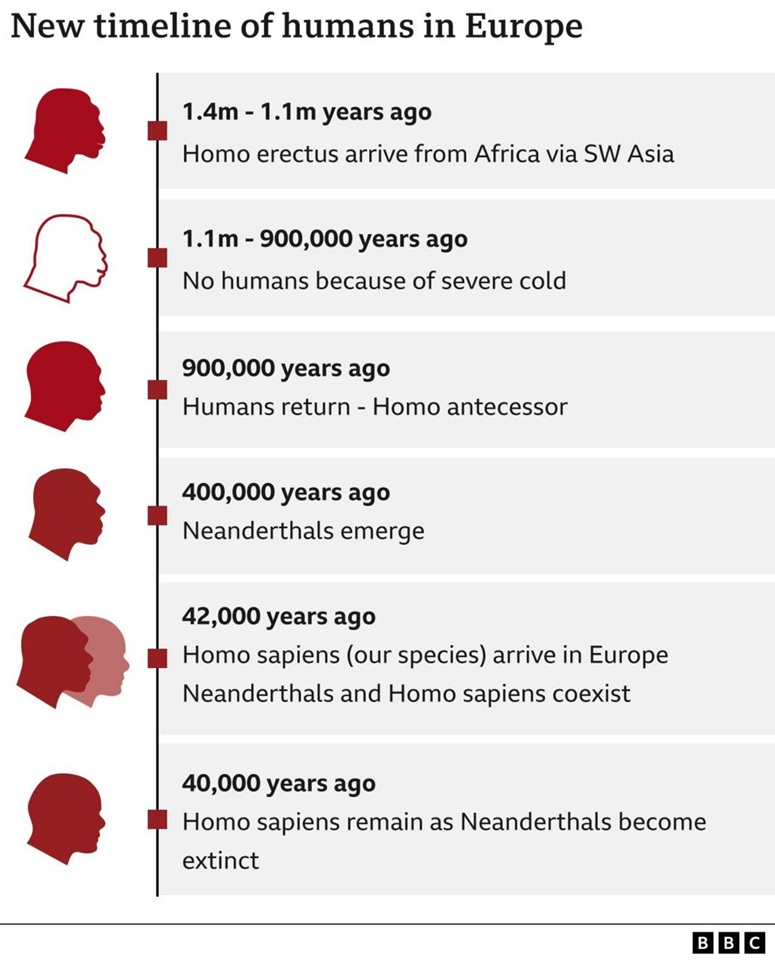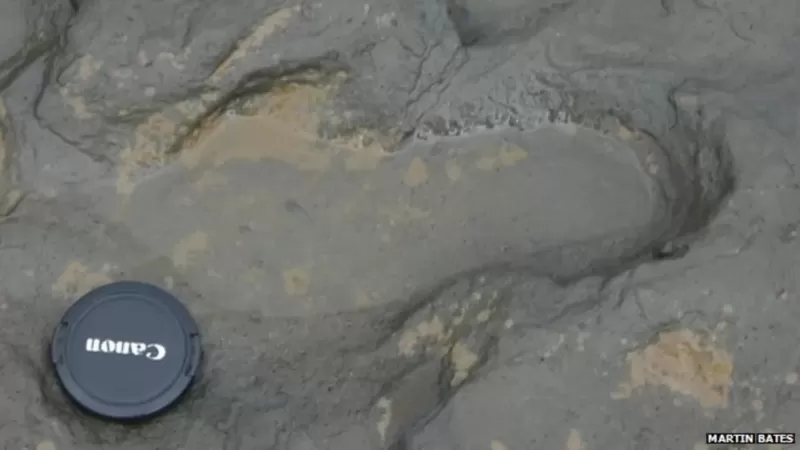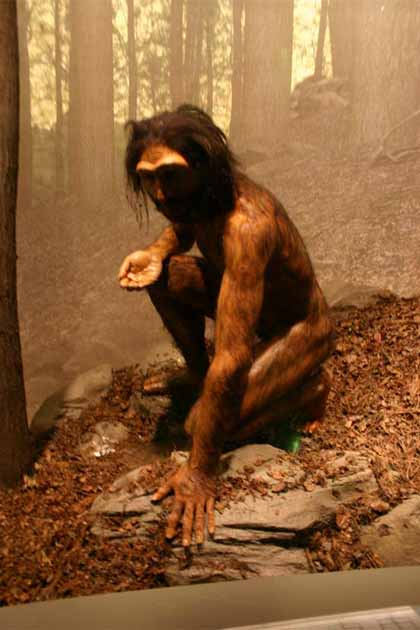Antiquity: A study showing that a great freeze led to the first humans leaving Europe

In Europe, the remains of a primitive human species known as Homo erectus, dating back to 1.4 million years ago, were found.
Recent research shows that a great freeze, which was not known scientifically or to scientists before, prompted the first humans to leave Europe for 200,000 years, but they adapted and returned.
Scientists say ocean sediments 1.1 million years ago show that temperatures suddenly dropped in Europe by more than 5 degrees Celsius.
They add that our early ancestors could not have survived because they did not have heating or clothing to protect them from the extreme cold.
Until recently, there was a consensus that humans have lived in Europe continuously for 1.5 million years.

Recently, however, evidence of massive freezing was found in sediments on the sea floor off the coast of Lisbon, Portugal. These layers of sediment accumulate every year, which is a record of sea conditions in that period. They also contain pollen, which is a record of plants on Earth.
Researchers at the IBS Center for Climatic Physics in Busan, South Korea, ran computer simulations using data from the sediments. They found that average winter temperatures in many regions of Europe fell below freezing, even in the milder Mediterranean region.
Human origin: A skull about 4 million years old defies prevailing theory
?Who are the original inhabitants of the Middle East
Mesopotamia: the ancient place from which history began
A decrease of this amount may not seem drastic by today's standards, when most people can use means of heating, clothing and food, but this was not the case at the time, according to Professor Axel Timmermann, director of the research group.
He added, "Early humans were not able to adapt to those harsh conditions. There is no direct evidence that they could even control fire at that time. Therefore, the extremely cold and dry conditions in Europe and the corresponding lack of food, must have been It has posed a great challenge to human survival."

It is possible that the footprints found on the beach of Heispera are those of a family who were searching for food
The oldest known human remains in Europe date back to about 1.4 million years ago and were recovered from what is now Spain. These remains suggest that a species of early humans known as Homo erectus, which originated in Africa, had reached Europe through southwest Asia at that time.
Professor Kronis Tzedakis of University College London, who led the research, enlisted experts in early human settlements to see if the theory that the freeze drove them out of Europe was supported by fossil and archaeological evidence.

After a comprehensive review, the researchers found that there were human remains dating back 1.1 million years ago in Spain, followed by a gap until about 900,000 years ago, from which stone tools and footprints were found in ancient clay at Hespera in Norfolk, England.
Due to a lack of fossil evidence, it is not clear what species of hominids were in Hespera, but later remains in other parts of Europe indicate that it may have been a more advanced species called Homo antecessor.
The Great Freeze ended around the time the first humans were in Hesperia, but it was still cold - much colder than it is in that part of Europe today. According to Professor Nick Ashton, of the British Museum, it is believed that these early humans adapted enough to deal with the cold conditions to be able to come and stay in Europe.

A new discovery shows that humans used tobacco 12,300 years ago
He told the BBC: "It may have caused evolutionary changes in humans, such as an increase in body fat, which acts as an insulator, or an increase in hair."
Ashton added: "It may also have led to technological developments such as improved hunting or foraging skills, the ability to develop clothing industry and build more efficient housing."

It may have been these developments that enabled humans to deal with successive severe cold periods and to live in parts of Europe continuously since then, according to Professor Chris Stringer of the Natural History Museum.
"Europe was a laboratory for human adaptation," he added.
"More resilient human races and species returned to Europe because they either learned how to survive better, or it was different races and human species that had more complex behaviors that enabled them to adapt," he added.
The human species in Hesperia may have evolved into Neanderthals, who arose 400,000 years ago.
Our current species, Homo sapiens, is believed to have evolved in Africa around 400,000 years ago. While humans were stationed in Europe 42,000 years ago, they coexisted briefly with Neanderthals before their extinction about 40,000 years ago.
Source: websites

